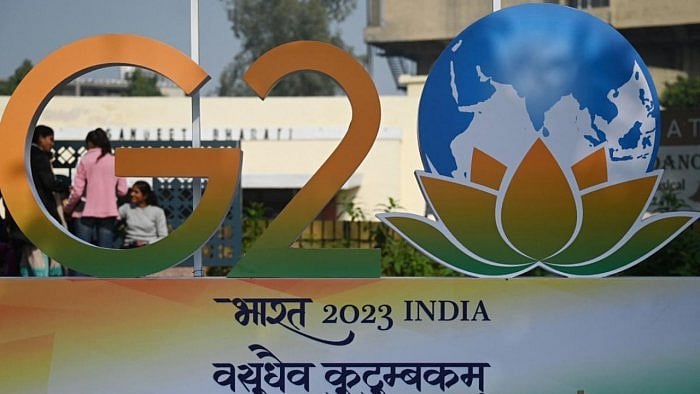
There was an outcry around two issues of public health importance within the last few months. One was about the trading and processing of human breast milk for profit; the second concerned the front-of-pack labelling of unhealthy or ultra-processed food products, which are usually high in sugar, salt or saturated fats.
We wish to highlight why these issues are worth dealing with through a legislative approach, as it will not only strengthen the healthcare system and the protection of people, but also have the potential to improve India’s image globally, especially when India has the G20 Presidency.
We like to draw the attention of the Prime Minister and the Union Health Minister to the specific solutions that we are offering to both issues as effective policy interventions.
The first one is about commercial trading and processing of human breast milk. This has been going on for quite a few years. India is the only country in Asia indulging in such an activity due to a weak regulatory system.
A couple of companies have been either processing mother’s milk and selling it at an exorbitant price or they are charging huge amounts of money to process breast milk into ‘powder’ form and return it to mothers in sachets. Both companies secured the licence as a “dairy product”, which is an example of a weak system turning human breast milk into a marketable commodity.
Of course, the Union government took some timely action as the Minister of State of Health and Family Welfare stated unequivocally in Parliament that mother’s milk cannot be commercialised.
Licence of one company has been cancelled, but they have filed a writ petition in the High Court seeking remedy. The licence of another company has been suspended. Both companies “appropriated” the value of breastfeeding in marketing their products or services.
This kind of commercialisation of mother’s milk is not akin to human milk banking. Many human milk banks in Indian hospitals are operating without commercial sales. Led by Brazil, 20 countries in Latin America are part of the ‘Human Milk Bank Networks’ under which it is prohibited to buy, sell or adopt any commercial practice involving human milk. The donation is voluntary and selfless.
In 2017, Cambodia banned commercial sales of mothers’ milk. UNICEF had warned that the sale of breastmilk, donated by Cambodian mothers, by a commercial company to women in the US could lead to babies of poor and vulnerable women becoming malnourished.
In Cambodia, Ngor Hong Ly, Secretary of State in the Council of Ministers, said, “Despite how poor and difficult Cambodia is, it’s not at a level where we sell breast milk.”
There are huge safety and ethical issues involved when mother’s milk or its processed powders are sold in the market. This defeats the very idea of banking of human milk to help preterm and very low birth weight babies being treated and cared for in special units. There is another question: When mothers provide their own milk to a commercial entity, are they depriving their babies?
A solution to these critical issues lies in bringing a Bill in Parliament, which the Ministry of Health and Family Welfare could initiate, and answering the questions: Should mother’s milk be allowed to be sold in the market? Can it be processed, converted into powder form to be used as a substitute?
The Bill could also address the ‘ethical standard’ and control of human breast milk banking in India.
The second issue that made a lot of news during the last one year is about the front-of-pack labelling of pre-packaged unhealthy food products.
The Prime Minister’s office rightly summoned the FSSAI to do this work as quickly as possible. This policy has been waiting to happen for several years. It was about to be implemented in 2018-19 but the proposed regulation never saw the light of the day.
The FSSAI’s proposed draft notification in September 2022 invited public comments within 60 days, which is over, and many people may have sent their comments.
Though the FSSAI has proposed ‘star’ rating, science does not support this and it is unlikely to achieve the goal of reducing the consumption of unhealthy food products. The average buyer is not able to understand the complicated calculation behind the ‘star’ rating. Instead, a clearly stated warning label cautioning how much of salt, sugar and calories are in excess of the recommended limits is a better approach.
Scientific studies do show a clear association of increased consumption of ultra-processed food with the onset of diabetes, heart disease, cancers and all cause deaths. Therefore, an intervention is much urgently required.
India has witnessed more than 6% rise in the consumption of unhealthy/ultra-processed food/drink products, and rising obesity both in men and women has increased by 25% in the past 5 years.
Adult onset of Type-2 diabetes is rapidly increasing, too. Unfortunately, these are the products which are widely advertised. Our simple research revealed that most of the advertised food products are unhealthy but advertisements continue unabated in spite of the self-regulatory processes.
This situation calls for a Bill in Parliament namely, ‘Prevention of Obesity and Non-Communicable Diseases’ with the objective of prohibiting advertisements and marketing of such food products.
It should also ensure display on the front of packs a ‘warning’ label’ showing whether these food products are high in sugar/salt or saturated fats, the three main culprits of the diseases mentioned above. You may also consider bringing unhealthy food products under the highest GST slab as done for cola drinks. Once done, these two legislations can be a turning point in public health for India; and an achievement that can be showcased at the G20.
(The writers are senior paediatricians. Gupta is the convener of Nutrition Advocacy in Public Interest and Antony is an independent public health consultant and former health & nutrition specialist, UNICEF, India)